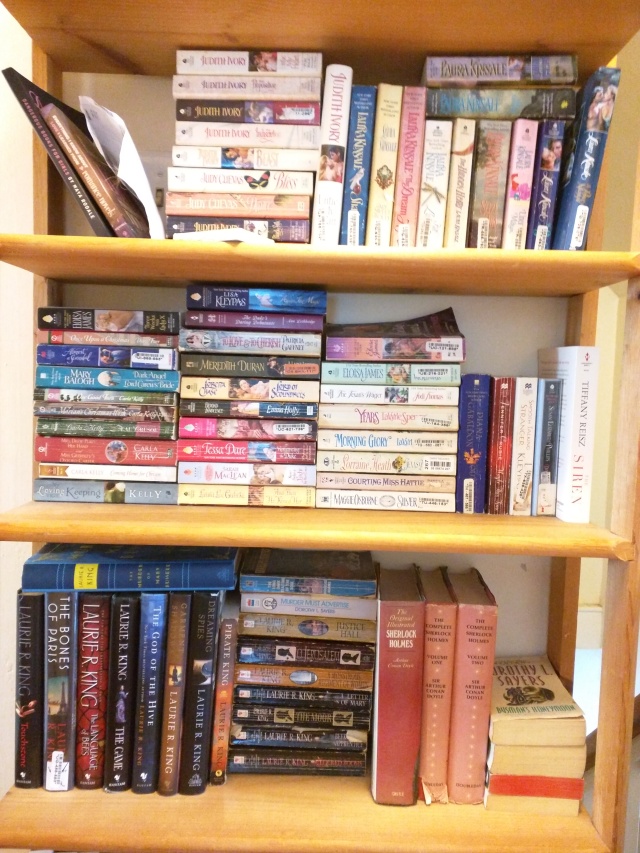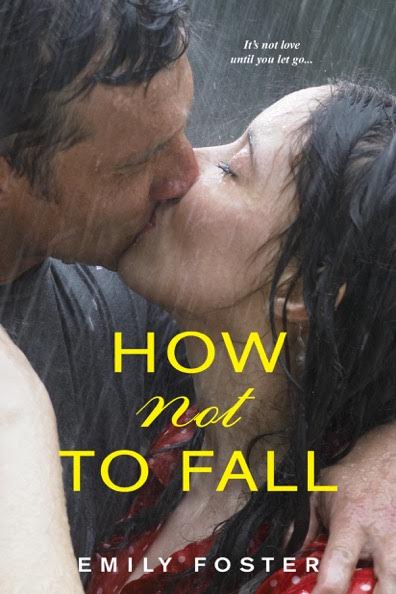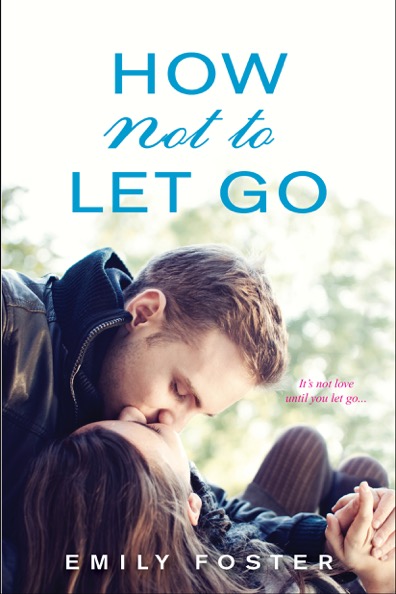Jo Eberhardt writes at WriterUnboxed about the “trouble with female protagonists” – spoiler: the trouble is “There aren’t enough of them.”
Indeed, even though she had made a concerted effort to include books with girl heroes in her sons’ collection, when she actually made an inventory, she found that just 27% of them had girls or women as the protagonist. She followed up by investigating her own shelves, and found that just 24% had women protagonists.
That’s not enough. I couldn’t agree more.
She concludes,
I don’t know how to fix any of this. It’s a huge issue, and goes beyond everyday sexism and into our ability to even perceive everyday sexism. All I can do is be aware of it, and actively seek out books with female protagonists. And, of course, write books with female protagonists.
which is when I thought, “… And you could read more romance.”
For example, allow me to introduce you to my keeper shelf:
Plenty of women protagonists to go around – not to mention women secondary characters and women’s friendships, all front and center. (Plus Sherlock Holmes.)
I’m not sure why romance isn’t represented on Jo’s shelf. Romance isn’t for everyone, certainly. But it seems to me that a woman writer who wants to create space for women characters might at least CONSIDER the possibility of reading more in a genre written primarily by women, primarily about women.
Or not. I mean, even Diana Gabaldon, author of Outlander, one of the most successful romance stories of this generation, says that her time travel romance isn’t romance. And why wouldn’t she want her story to be considered a romance? Now that I’m a romance novelist myself, I’ve experienced the gasp and sneer of the non-romance reader in response to the phrase, “romance novel,” and honestly it still surprises me, especially when it comes from folks who’ve faced similar marginalization.
Somewhere deep down, our culture tells us that women, love, and sex – in that order – are a waste of our time and attention. They aren’t “real” subjects for storytelling. War and spies and cheating on your spouse – those are real. (Never mind that you can find them aplenty in romance.)
The internet is already laden with think pieces and interviews dating back to 1986 at least, about how feminist romance is, and how it is dismissed because it written by and about women, because it prioritizes women’s sexual pleasure, because it (increasingly) portrays a diversity of women’s stories, because it dares to present us with the idea that love matters, without irony or cynicism, and the books bring readers (mostly women) pleasure and joy. So I won’t bore you by recounting all of that.
The internet is also laden with lists of great feminist books – here are just a few:
- 9 Surprisingly Feminist Romance Novels
- 10 Feminist Romance Novels to Hop in Bed with
- 11 Romance Novels for Clever Ladies
- A whole blog about feminist fantasy, including romance.
- A sparse but excellent blog specifically about feminist romance
- Jessica Luther’s list of favorite romances
- More recommended feminist romance novels
- Sarah MacLean’s list of 100 recommended romances
So I won’t add a list of my own – maybe in the future I will.
My friends, August is Read a Romance Novel Month. Pick a list. Pick a book. Pick a friend. Read together. Talk about it. It’s okay to read for fun, it’s okay to love a happy ending, it’s okay to read hot, highly consensual, multi-orgasmic sex.
Read a romance novel. Read about women living complicated lives and finding partners who love them in all their complication. The world will not end if you dare to have some damn fun with your feminism.



